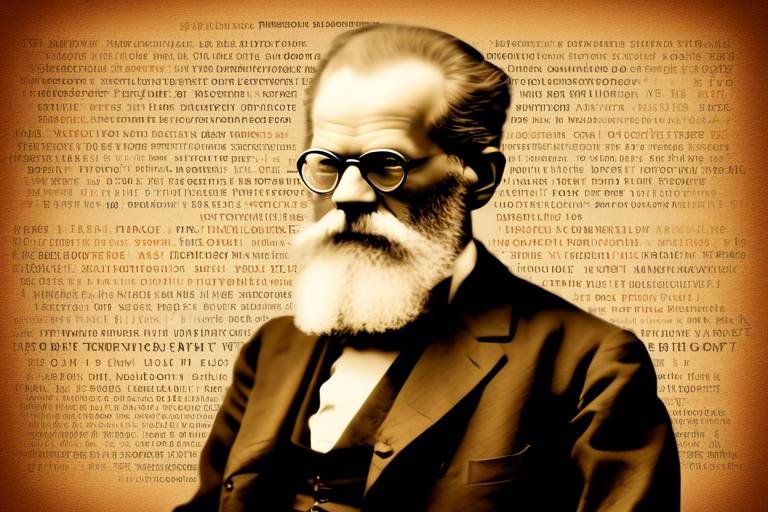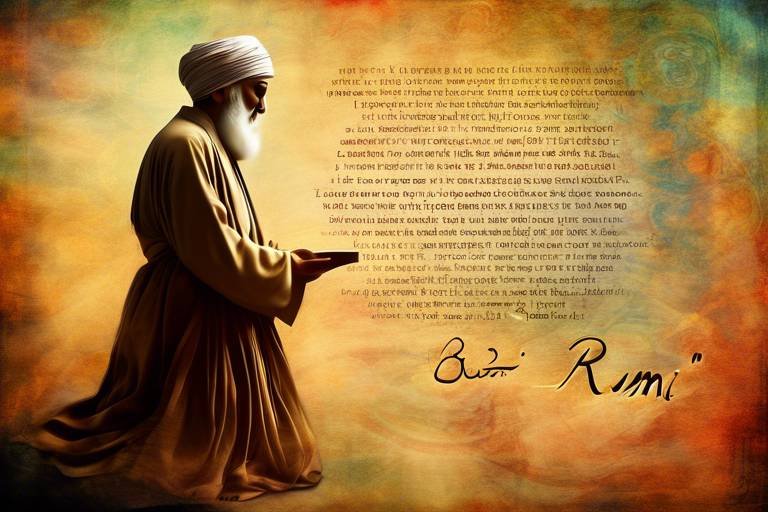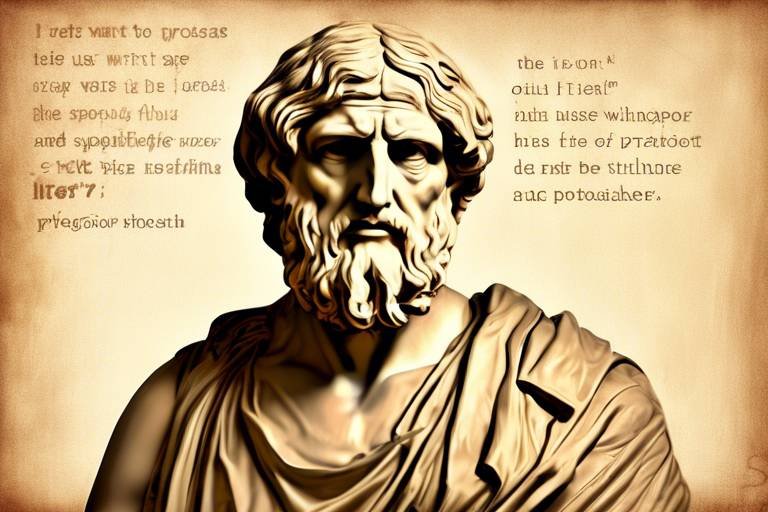Carl Schmitt's Philosophy - A Look at Political Theology
Carl Schmitt, a profound and often controversial figure in political theory, has left an indelible mark on the understanding of political theology. His work challenges us to reconsider the intersections between politics and religion, particularly in how these domains influence the legitimacy of state power. Schmitt's ideas resonate in today's political climate, where questions of authority and governance are more pertinent than ever. As we delve into his philosophy, we uncover a complex framework that highlights the necessity of strong leadership, especially in times of crisis. This article aims to explore Schmitt's foundational concepts, including sovereignty, decisionism, and the inherent tensions within liberal democratic frameworks.
At the heart of Schmitt's philosophy is the notion that the state must possess the ultimate authority to make critical decisions, particularly during emergencies. He famously stated, "Sovereign is he who decides on the exception," suggesting that the ability to act decisively is crucial for maintaining order and stability. This perspective raises important questions: What happens when the state must act outside of established legal frameworks? How does one balance the need for swift action with the preservation of individual rights? Schmitt's insights into these dilemmas provide a foundational understanding of modern governance.
In examining Schmitt's ideas, we also encounter his critique of liberalism, which he views as inadequate for addressing the complexities of political life. He argues that liberal democratic principles often falter in crisis situations, where decisive action is required. This leads us to consider the implications of his work on contemporary politics. How do Schmitt's theories apply to current events, where we frequently see leaders invoking emergency powers? The relevance of Schmitt's thought becomes increasingly clear as we navigate the turbulent waters of modern governance.
As we embark on this exploration of Carl Schmitt's philosophy, we invite you to reflect on the profound implications of his ideas. Through the lens of political theology, we can better understand the intricate dance between authority, legitimacy, and the role of the state in shaping our collective future. Let’s dive deeper into the key components of Schmitt's thought and their implications for our understanding of political authority.
Sovereignty is central to Schmitt's political thought, emphasizing the authority of the state to make decisions in times of crisis. This section delves into his definition and implications for modern governance.
Schmitt's decisionism argues that the ability to make decisive choices is essential for effective leadership. This section analyzes how this concept impacts both political authority and democratic processes.
Emergency powers are a key aspect of decisionism, allowing leaders to act swiftly during crises. This subsection examines how Schmitt justified such powers and their consequences for civil liberties.
Schmitt distinguishes between legal authority and political authority, suggesting that true political power transcends legal frameworks. This section discusses the implications of this distinction for contemporary political structures.
Analyzing historical examples, this subsection illustrates how Schmitt's decisionism manifested in various political contexts, revealing both its strengths and potential dangers in governance.
Political theology explores the relationship between political authority and religious concepts. This section outlines Schmitt's views on how theology informs political legitimacy in modern states.
Schmitt's critique of liberalism highlights its perceived weaknesses, particularly in times of crisis. This section evaluates his arguments against liberal democratic principles and their relevance today.
The friend-enemy distinction is fundamental to Schmitt's thought, emphasizing the role of conflict in politics. This subsection explores how this concept shapes political identity and community.
Schmitt's ideas continue to resonate in modern political discourse. This section examines how his philosophy informs current debates on sovereignty, governance, and the role of the state in society.
- What is political theology? Political theology examines the relationship between political authority and religious beliefs, particularly how these beliefs influence governance.
- How does Schmitt define sovereignty? Schmitt defines sovereignty as the ultimate authority of the state to make decisions, especially in emergencies.
- What is decisionism? Decisionism is the idea that effective leadership requires the ability to make decisive choices, particularly in times of crisis.
- Why is Schmitt's critique of liberalism significant? Schmitt's critique highlights the vulnerabilities of liberal democratic principles during crises, prompting a reevaluation of how we understand political authority.

The Concept of Sovereignty
Sovereignty is not just a buzzword tossed around in political circles; it’s the very backbone of Carl Schmitt's political philosophy. At its core, sovereignty represents the ultimate authority of the state to make decisions, especially in times of crisis. Schmitt posits that the sovereign is he who decides on the exception. This means that in moments of turmoil, when normal legal frameworks falter, it is the sovereign who must step in, wielding the power to act decisively. Imagine a ship navigating through a storm; the captain must make quick decisions to steer the vessel safely to shore, even if it means breaking some maritime rules along the way. This metaphor encapsulates Schmitt's view on sovereignty—it's about maintaining order amidst chaos.
In Schmitt's framework, the concept of sovereignty has profound implications for modern governance. He argues that a state’s authority is most pronounced when it can step outside the constraints of law during emergencies. This perspective challenges the traditional view that law is the highest authority, suggesting instead that political power is often more significant in practice. For Schmitt, the state must have the ability to act without hesitation, particularly in situations that threaten its existence.
To further understand Schmitt's ideas, we can break down sovereignty into several key components:
- Decision-Making Authority: The sovereign's primary role is to make decisions that safeguard the state, especially in crises.
- Legal Frameworks: While laws provide structure, sovereignty allows for flexibility when those laws impede necessary action.
- Political Identity: The concept of sovereignty is intertwined with the identity of the state and its people, shaping how they respond to internal and external challenges.
This view of sovereignty raises important questions about the balance of power in modern democracies. Can a government justify extraordinary measures when faced with unprecedented threats? How do we ensure that such powers are not abused? Schmitt's ideas compel us to scrutinize the relationship between authority and accountability. In an era where crises seem to be the new norm—be it pandemics, economic downturns, or geopolitical tensions—the relevance of Schmitt's thoughts on sovereignty becomes even more pronounced.
Furthermore, Schmitt's perspective invites us to consider the implications of sovereignty on civil liberties. When leaders are granted emergency powers, the potential for overreach is significant. This tension between security and freedom is a theme that resonates deeply in contemporary political discourse. As we navigate the complexities of modern governance, Schmitt's insights serve as a critical lens through which we can examine the dynamics of power and its impact on society.

Decisionism in Political Theory
In the realm of political theory, decisionism emerges as a compelling concept that underscores the necessity of decisive action in leadership. Carl Schmitt, a pivotal figure in this discourse, posited that effective governance often hinges on the ability to make swift and resolute choices, particularly in times of uncertainty or crisis. This notion challenges the idea that politics should be solely governed by established laws and procedures. Instead, Schmitt argues that true leadership involves a dynamic interplay between authority and the unpredictable nature of political life.
At its core, decisionism suggests that the capacity to make decisions is not just an administrative function but a fundamental aspect of political authority. In a world fraught with complexities, leaders must sometimes transcend bureaucratic limitations to address urgent issues effectively. This perspective raises critical questions about the balance between democratic processes and the need for decisive action. Can a leader maintain legitimacy while acting outside the confines of established legal frameworks? Schmitt believed that in moments of crisis, the necessity for rapid decision-making could justify such actions, even if they appear to undermine democratic principles.
One of the most striking implications of Schmitt's decisionism is the concept of emergency powers. When a state faces existential threats—be it from war, natural disasters, or civil unrest—leaders may invoke special powers to ensure swift responses. While this can be seen as a pragmatic approach to governance, it also poses significant risks to civil liberties. The potential for abuse of power raises alarms about the erosion of democratic norms in favor of expediency. Schmitt's justification for emergency powers is rooted in the belief that a leader must act decisively to protect the state, even if it means circumventing established legal norms.
To further understand decisionism, it is crucial to distinguish between legal authority and political authority. Schmitt asserts that political authority transcends legal frameworks; it is about the capacity to act in the interest of the state and its citizens, regardless of existing laws. This distinction is particularly relevant in contemporary political structures, where leaders often grapple with the tension between adhering to legal protocols and responding to the exigencies of the moment. The challenge lies in ensuring that the exercise of political authority remains accountable and does not devolve into authoritarianism.
Historical case studies provide illuminating examples of decisionism in action. For instance, during times of war, leaders have often taken extraordinary measures that challenge the status quo of legal governance. The decisions made in such contexts can lead to significant shifts in political landscapes, revealing both the strengths and potential dangers of Schmitt's framework. By analyzing these moments, we can gain insights into the delicate balance between decisive leadership and the preservation of democratic ideals.
In summary, decisionism is a profound aspect of political theory that continues to spark debate. As we navigate the complexities of modern governance, the implications of Schmitt's ideas resonate with contemporary challenges. The interplay between decisive action and democratic principles remains a critical conversation in understanding how societies can effectively respond to crises while safeguarding their foundational values.
- What is decisionism? Decisionism is a political theory that emphasizes the importance of decisive action in leadership, particularly during times of crisis.
- How does decisionism relate to democracy? While decisionism prioritizes swift action, it raises concerns about the potential erosion of democratic principles when leaders act outside established legal frameworks.
- What are emergency powers? Emergency powers are special authorities granted to leaders during crises that allow them to bypass normal legal procedures to ensure rapid responses.
- Why is the distinction between legal and political authority important? This distinction highlights the tension between adhering to laws and the necessity for leaders to act in the interest of the state, which can sometimes require overriding legal constraints.

Emergency Powers
Emergency powers are a crucial aspect of Carl Schmitt's political philosophy, particularly within his framework of decisionism. When a crisis strikes—be it a natural disaster, a war, or a public health emergency—the state is often faced with the challenge of maintaining order and security. In such moments, the traditional legal frameworks may falter, and the need for decisive action becomes paramount. Schmitt argues that the sovereign, or the state authority, must possess the ability to act swiftly and decisively, even if it means temporarily suspending certain legal norms. This raises an important question: how far should a government go in exercising these emergency powers?
Schmitt justified the invocation of emergency powers by emphasizing that the very essence of sovereignty lies in the ability to make critical decisions during times of uncertainty. He believed that the sovereign must be prepared to step outside the bounds of established law to protect the state and its citizens. However, this notion is not without its controversies. Critics argue that such powers can lead to authoritarianism, where leaders exploit crises to consolidate their power and undermine democratic principles.
To illustrate the implications of emergency powers, consider the following table which outlines key characteristics and potential consequences:
| Characteristic | Potential Consequences |
|---|---|
| Suspension of Rights | Can lead to abuses of power and violation of civil liberties. |
| Concentration of Power | May result in authoritarian governance if unchecked. |
| Swift Decision-Making | Allows for rapid response to crises, potentially saving lives. |
| Legitimacy Questions | Challenges the foundation of democratic authority and public trust. |
Moreover, the use of emergency powers often raises ethical and legal dilemmas. For instance, how do we balance the need for security against the preservation of individual rights? Schmitt’s perspective suggests that in the face of existential threats, the state must prioritize its survival, even if it means overriding the legal order temporarily. This dichotomy between security and liberty is a recurring theme in political discourse, especially in contemporary times where global threats loom large.
In conclusion, while Schmitt’s advocacy for emergency powers underscores the necessity of decisive leadership during crises, it also serves as a cautionary tale about the potential for abuse. The challenge lies in finding a balance that allows for effective governance without compromising the core values of democracy. As we navigate through our own political landscapes, it is essential to reflect on Schmitt’s ideas and their implications for our understanding of sovereignty and authority.
- What are emergency powers? Emergency powers are special authorities granted to the state during times of crisis, allowing it to act outside normal legal constraints to ensure public safety and order.
- How does Carl Schmitt view emergency powers? Schmitt believes that emergency powers are essential for sovereignty, enabling leaders to make swift decisions in times of crisis.
- What are the risks associated with emergency powers? The primary risks include potential abuses of power, violation of civil liberties, and the erosion of democratic principles.
- Can emergency powers be justified? While some argue they are necessary for effective governance during crises, others caution against their potential to lead to authoritarianism.
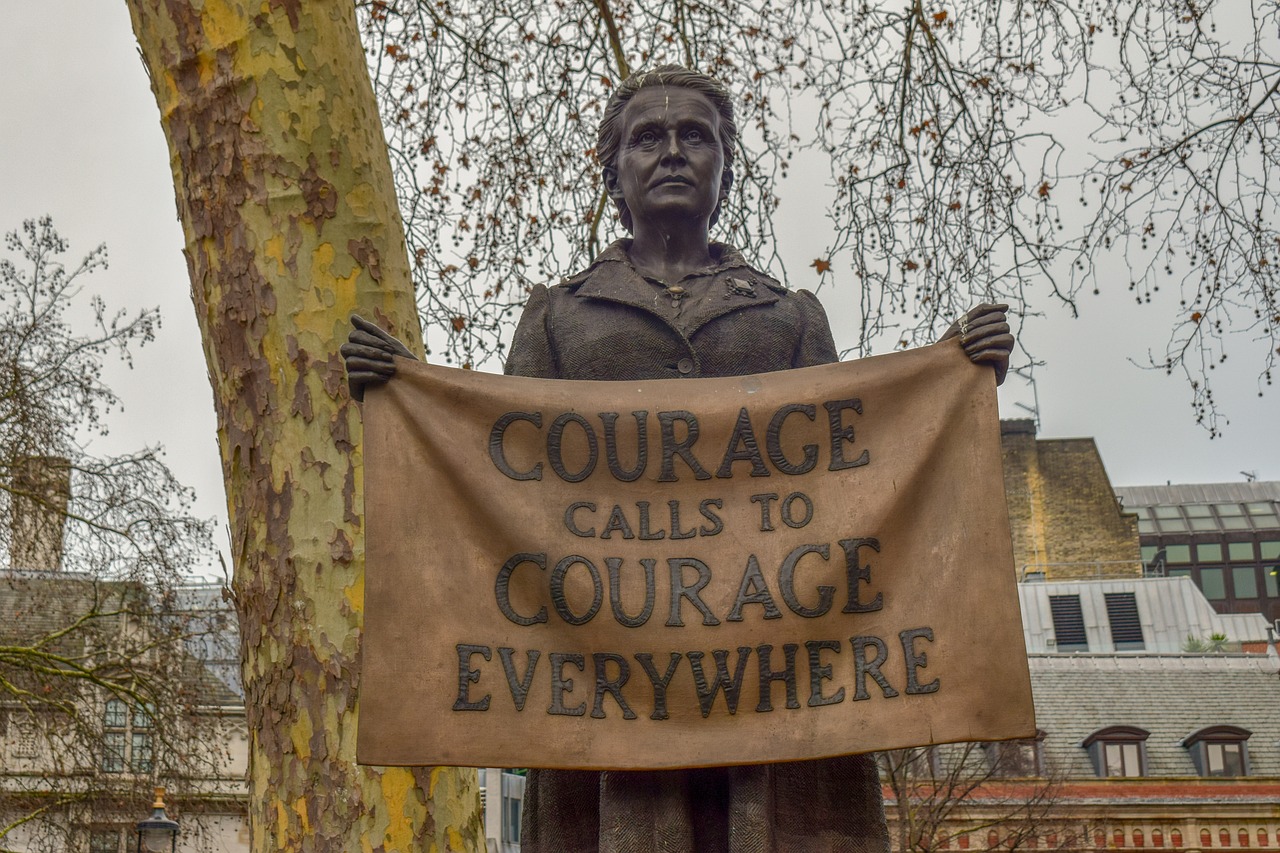
Legal vs. Political Authority
In the intricate web of governance, the distinction between legal authority and political authority plays a pivotal role in understanding how power is exercised and legitimized. Carl Schmitt argued that while legal authority is bound by established laws and regulations, political authority transcends these frameworks, existing in a realm where decisions must be made swiftly and decisively. This distinction is not merely academic; it has profound implications for how leaders navigate crises and maintain order within society.
Legal authority is grounded in the rule of law, where actions are dictated by statutes and legal precedents. It operates under the premise that laws are created to govern behavior and ensure justice. However, Schmitt contended that during times of crisis, strict adherence to legal frameworks can be detrimental. The state must possess the ability to act beyond the law to protect its citizens and maintain stability. This is where political authority steps in, allowing leaders to make decisions that may not align with existing legal structures but are deemed necessary for the greater good.
To illustrate this concept, consider the following table that contrasts the two forms of authority:
| Aspect | Legal Authority | Political Authority |
|---|---|---|
| Definition | Authority derived from established laws | Authority derived from the need for decisive action |
| Flexibility | Rigid and structured | Fluid and adaptable |
| Decision-Making | Bound by legal procedures | Focused on outcomes and effectiveness |
| Examples | Judicial rulings, statutory laws | Emergency powers, executive orders |
This table highlights that while legal authority seeks to uphold a system of checks and balances, political authority recognizes that in moments of urgency, such structures can hinder effective governance. Schmitt's perspective invites us to question: should leaders always adhere to legal constraints, or is there a time when breaking away from the law is not just justified, but necessary?
Furthermore, Schmitt's exploration of these concepts raises critical questions about accountability. If political authority can operate outside legal boundaries, who holds these leaders accountable? This tension between legal and political authority is particularly relevant in contemporary discussions about executive power and the limits of governmental authority. As we navigate a world rife with uncertainty and rapid change, understanding this distinction becomes crucial for both citizens and policymakers alike.
In conclusion, Schmitt's analysis of legal versus political authority challenges us to rethink our assumptions about governance. It compels us to consider the balance between order and flexibility, legality and necessity. As we face new challenges in our political landscape, these ideas remain not only relevant but essential for fostering a deeper understanding of how power operates in our societies.
- What is the main difference between legal authority and political authority?
Legal authority is based on established laws, while political authority allows leaders to act beyond those laws in times of crisis. - Why is the distinction between these authorities important?
This distinction helps us understand how decisions are made during emergencies and the implications for governance and civil liberties. - How does Schmitt's philosophy apply to modern politics?
Schmitt's ideas provide insight into current debates about the balance of power, especially in situations where swift action is required.

Case Studies of Decisionism
Carl Schmitt's concept of decisionism isn't just a theoretical construct; it has been put into practice throughout history in various political contexts. By examining specific case studies, we can better understand how decisionism operates in real-world scenarios and the implications it carries for governance. One prominent example is the use of emergency powers during the Weimar Republic in Germany. In this turbulent period, the government faced numerous crises, including economic instability and political extremism. Schmitt argued that the state must have the authority to act decisively in such situations, even if it meant bypassing legal norms. This led to the implementation of emergency decrees that allowed the government to suspend civil liberties in the name of maintaining order.
Another significant case study can be found in the aftermath of the September 11 attacks in the United States. In response to the perceived threat of terrorism, the U.S. government invoked decisionism by expanding executive powers, which included surveillance measures and the controversial PATRIOT Act. These actions were justified on the grounds of national security, illustrating Schmitt's assertion that in times of crisis, political authority must assert itself beyond the confines of legal frameworks. However, this also raised concerns about the erosion of civil rights and the potential for abuse of power, echoing Schmitt's warnings about the dangers of unchecked authority.
To further illustrate the impact of decisionism, we can look at the case of Brazil during its military dictatorship from 1964 to 1985. The Brazilian government justified its authoritarian rule through the lens of decisionism, claiming that extraordinary measures were necessary to combat leftist insurgency and maintain national stability. The military regime suspended constitutional rights, enacted censorship, and employed violence against political opponents, all in the name of decisive governance. This case highlights the fine line between necessary action and authoritarianism, a central theme in Schmitt's philosophy.
In each of these examples, the critical takeaway is the tension between the need for decisive action and the potential for overreach. Schmitt's decisionism raises essential questions about the nature of political authority and the role of the state in times of crisis. It forces us to consider: How much power should be granted to leaders in emergencies? And at what point does the exercise of that power undermine the very principles of democracy and civil liberties?
As we reflect on these case studies, it's clear that Schmitt's ideas continue to resonate in contemporary discussions about governance. The balance between security and freedom remains a pressing issue, and understanding the historical applications of decisionism can provide valuable insights into today's political landscape.
- What is decisionism? Decisionism is a political theory proposed by Carl Schmitt that emphasizes the importance of decisive action by political leaders, particularly in times of crisis.
- How does decisionism relate to sovereignty? Decisionism is closely tied to the concept of sovereignty, as it argues that the state must have the authority to act independently of legal constraints to maintain order and stability.
- Can decisionism lead to authoritarianism? Yes, while decisionism can provide necessary responses to crises, it also poses the risk of justifying authoritarian measures that undermine democratic principles and civil liberties.
- What are some historical examples of decisionism? Notable examples include the emergency powers enacted during the Weimar Republic, the U.S. government's response to the September 11 attacks, and Brazil's military dictatorship.
- How relevant is Schmitt's philosophy today? Schmitt's ideas continue to influence modern political discourse, especially in debates surrounding national security, governance, and the balance between authority and individual rights.
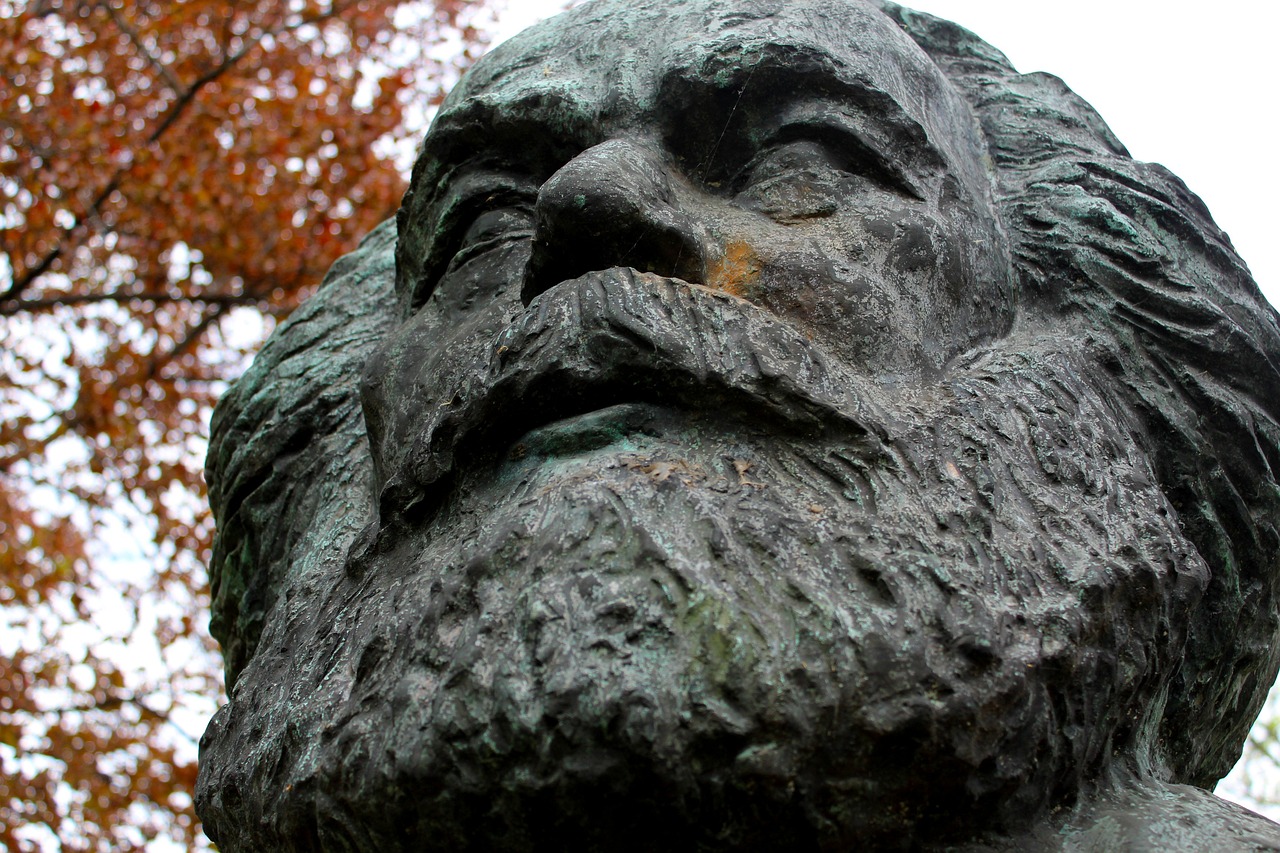
Political Theology Explained
Political theology is a fascinating and complex area of study that delves into the intricate relationship between political authority and religious concepts. At its core, it seeks to understand how theological ideas shape and inform the legitimacy of political power in modern states. For Carl Schmitt, this intertwining of politics and religion is not just an academic curiosity; it is a fundamental aspect of how societies function. Schmitt argues that the state’s authority often derives from a higher moral or divine order, which adds a layer of legitimacy that purely secular frameworks may lack.
Schmitt posits that the modern state cannot be fully understood without acknowledging its theological underpinnings. He suggests that political authority is often legitimized through a narrative that draws on religious themes, such as divine right or moral obligation. This perspective raises intriguing questions: Can a state operate entirely on secular principles, or does it inevitably rely on some form of moral or spiritual justification? Schmitt's exploration of these themes reveals a tension inherent in modern governance, where the sacred and the profane often collide.
One of the key aspects of Schmitt's political theology is the notion that sovereignty is not just a legal concept but also a theological one. He argues that the sovereign is the one who decides on the exception, meaning that in times of crisis, the leader must have the authority to transcend legal norms to protect the state. This idea echoes biblical themes where divine authority is invoked in times of existential threats. Thus, the ability of a leader to act decisively in emergencies can be seen as a reflection of a deeper, almost sacred responsibility.
To further illustrate Schmitt's views, consider the following table that outlines the differences between political authority grounded in secular versus theological foundations:
| Aspect | Secular Political Authority | Theological Political Authority |
|---|---|---|
| Legitimacy Source | Legal frameworks and democratic processes | Divine mandate or moral obligation |
| Decision-Making | Consensus and rule of law | Decisive action in the name of higher principles |
| View of Crisis | Legal procedures and checks | Opportunity for sovereign intervention |
Schmitt's political theology also raises important implications for how we understand modern governance. In a world where crises seem to be the norm rather than the exception, the question of how much power should be vested in a sovereign authority becomes increasingly pertinent. Should leaders be allowed to act beyond legal constraints in the name of the greater good? Or does this open the door to authoritarianism under the guise of necessity? These questions are not merely theoretical; they resonate deeply in contemporary political debates.
In conclusion, Schmitt's political theology provides a lens through which we can analyze the complexities of authority, legitimacy, and the role of crises in governance. As we navigate the challenges of modern society, understanding the interplay between politics and theology may offer valuable insights into the nature of power and the responsibilities that come with it. Are we prepared to confront the implications of these ideas, or will we continue to overlook the profound connections between our political frameworks and the religious narratives that underpin them?
- What is political theology? Political theology examines how religious concepts influence political authority and legitimacy.
- How does Schmitt view sovereignty? Schmitt believes sovereignty transcends legal frameworks and is often justified through theological principles.
- What role does crisis play in Schmitt's thought? He argues that crises necessitate decisive action from leaders, which can blur the lines between legal and political authority.
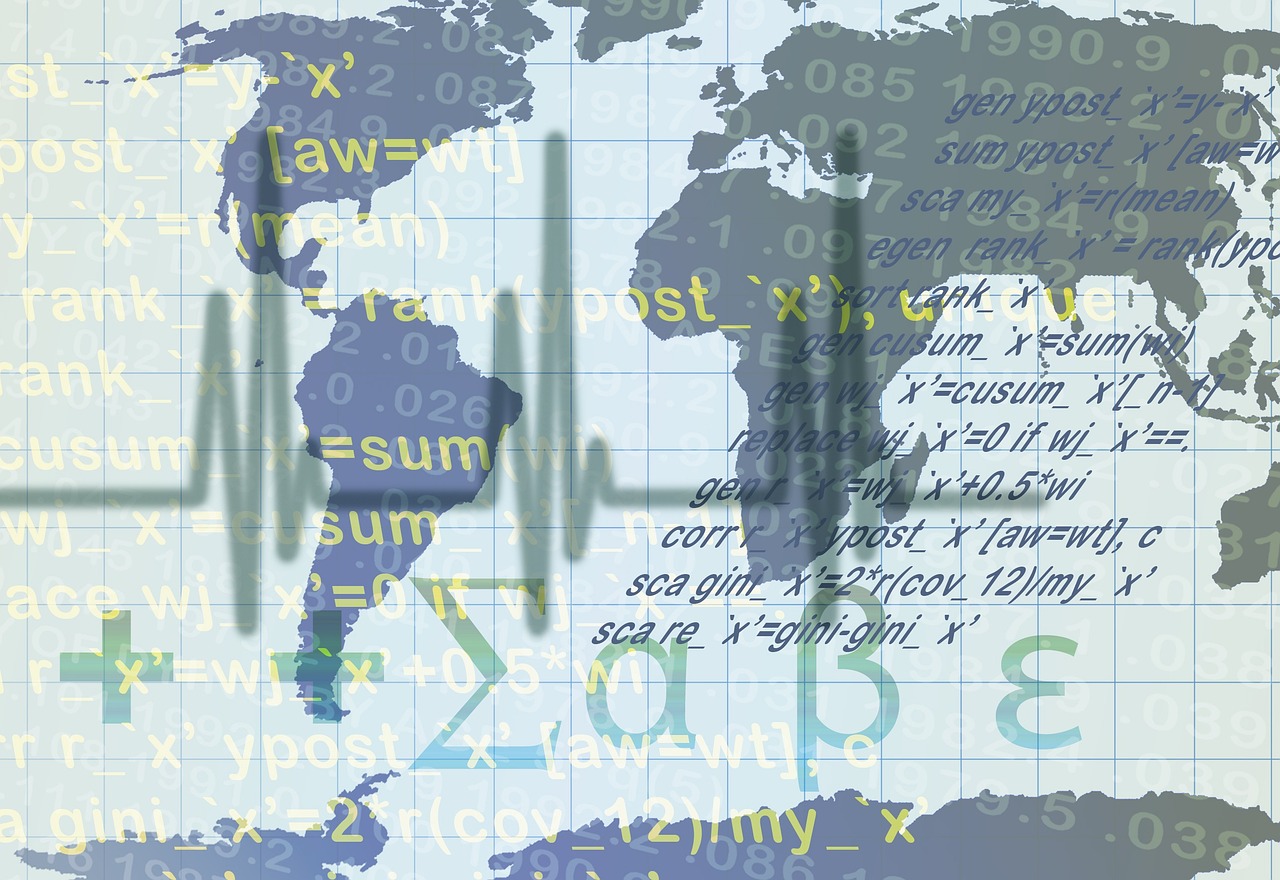
Critique of Liberalism
Carl Schmitt's critique of liberalism is a fascinating exploration of the inherent weaknesses he perceived in liberal democratic principles, especially during periods of crisis. In Schmitt's view, liberalism's emphasis on individual rights and the rule of law often undermines the state's ability to respond decisively in emergency situations. He believed that the liberal focus on procedural norms and consensus can lead to paralysis when swift action is necessary. Imagine a ship caught in a storm; if the crew is too busy debating the best course of action, they may fail to navigate safely through the tempest.
Schmitt argued that liberalism's foundational belief in a neutral state, which treats all citizens equally, neglects the reality of political conflict. In his eyes, politics is inherently about the division between friends and enemies. This idea is encapsulated in his famous phrase: "The political is the distinction between friend and enemy." In a liberal framework, this distinction is often downplayed or ignored, leading to a false sense of harmony that can shatter when faced with real threats. Schmitt posited that without recognizing the potential for conflict, liberalism fails to prepare for the necessary decisions that must be made in times of crisis.
Furthermore, Schmitt criticized liberalism for its reliance on abstract principles and universal values, which he believed could not adequately address the complexities of political life. He argued that these ideals often serve to mask the underlying power dynamics at play. For instance, when a state prioritizes individual freedoms over collective security, it risks creating a situation where those freedoms can be exploited by malicious actors. Schmitt's perspective prompts us to reconsider whether a purely liberal approach can truly safeguard society against existential threats.
To illustrate his critique, Schmitt pointed to historical examples where liberal democracies struggled to maintain order during crises. He believed that the inability to make decisive choices led to chaos and instability. Consider the rise of authoritarian regimes during times of national emergency; these leaders often capitalize on the weaknesses of liberal systems to consolidate power. Schmitt's analysis raises important questions about the balance between liberty and authority, especially when the very existence of the state is at stake.
In summary, Schmitt's critique of liberalism serves as a powerful reminder of the limitations of a system that prioritizes individual rights over collective responsibility. His insights challenge us to think critically about the role of authority in governance and the necessity of decisive action in preserving order. As we navigate the complexities of contemporary politics, Schmitt's warnings about the fragility of liberalism remain highly relevant.
- What is Carl Schmitt's main argument against liberalism?
Schmitt argues that liberalism's focus on individual rights and procedural norms can hinder effective governance, especially in times of crisis. - How does Schmitt's concept of the friend-enemy distinction relate to his critique of liberalism?
Schmitt believes that liberalism fails to recognize the inherent conflicts in politics, which can lead to a lack of preparedness for emergencies. - Why does Schmitt think that liberalism is inadequate during crises?
He argues that liberalism's emphasis on consensus and neutrality can result in indecision, which is detrimental when swift action is required.

Friend-Enemy Distinction
The is a cornerstone of Carl Schmitt's political philosophy, providing a lens through which we can understand the dynamics of power and conflict in politics. Schmitt argues that the essence of political identity is defined by the dichotomy between friends and enemies. This distinction is not merely a theoretical construct; it reflects a fundamental reality of human interaction and societal organization. In essence, politics is about the struggle for survival, where recognizing allies and adversaries is crucial for any political entity.
To Schmitt, the political is inherently tied to the existential. He posits that the friend-enemy distinction is what separates political life from other social spheres. In his view, the political is characterized by conflict, and this conflict is not just a backdrop but a defining feature of political existence. When we think about nations or groups, we often see them as entities that must define themselves against others. This is where the friend-enemy distinction becomes vital. It shapes not only how groups perceive themselves but also how they interact with others.
Consider how nations often rally around a common cause when faced with an external threat. In times of war, the lines between friend and enemy become starkly drawn, and this clarity can unify a populace. Schmitt believed that this unity is essential for the survival of a political entity. Without a clear understanding of who the enemy is, a state risks fragmentation and vulnerability. This is why political leaders often emphasize the friend-enemy distinction during crises, as it galvanizes support and fosters a sense of identity among their constituents.
However, the implications of this distinction extend beyond mere survival. It raises profound questions about the nature of conflict and cooperation in politics. For instance, how do we reconcile the need for unity against a common enemy with the values of tolerance and coexistence? Schmitt's framework suggests that the friend-enemy distinction can lead to a more polarized society, where the 'other' is demonized and conflict becomes normalized. This is particularly relevant in today's political climate, where divisive rhetoric often shapes public discourse.
Moreover, the friend-enemy distinction can manifest in various forms, impacting everything from domestic policy to international relations. For example, in domestic politics, political parties often position themselves against each other, framing their opponents as enemies of the state or the people. This can lead to a toxic political environment where compromise becomes nearly impossible. On the international stage, nations may engage in similar rhetoric, justifying military actions or sanctions against perceived threats.
In conclusion, Schmitt's friend-enemy distinction is not just a theoretical concept; it is a practical tool for understanding the complexities of political life. It highlights the inherent conflicts that define political relationships and the necessity of recognizing allies and adversaries. As we navigate the challenges of modern governance, this distinction serves as a reminder of the delicate balance between unity and division, cooperation and conflict.
- What is the friend-enemy distinction?
The friend-enemy distinction is a concept introduced by Carl Schmitt that emphasizes the importance of recognizing allies and adversaries in political life. It suggests that political identity is shaped by conflict and the need for survival against perceived threats.
- How does this concept apply to modern politics?
In modern politics, the friend-enemy distinction can lead to polarization, where political parties or nations define themselves against each other, often resulting in a toxic environment that hinders cooperation and compromise.
- Why is the friend-enemy distinction important?
Understanding this distinction helps to navigate the complexities of political relationships and provides insights into how conflict and cooperation shape governance and societal dynamics.
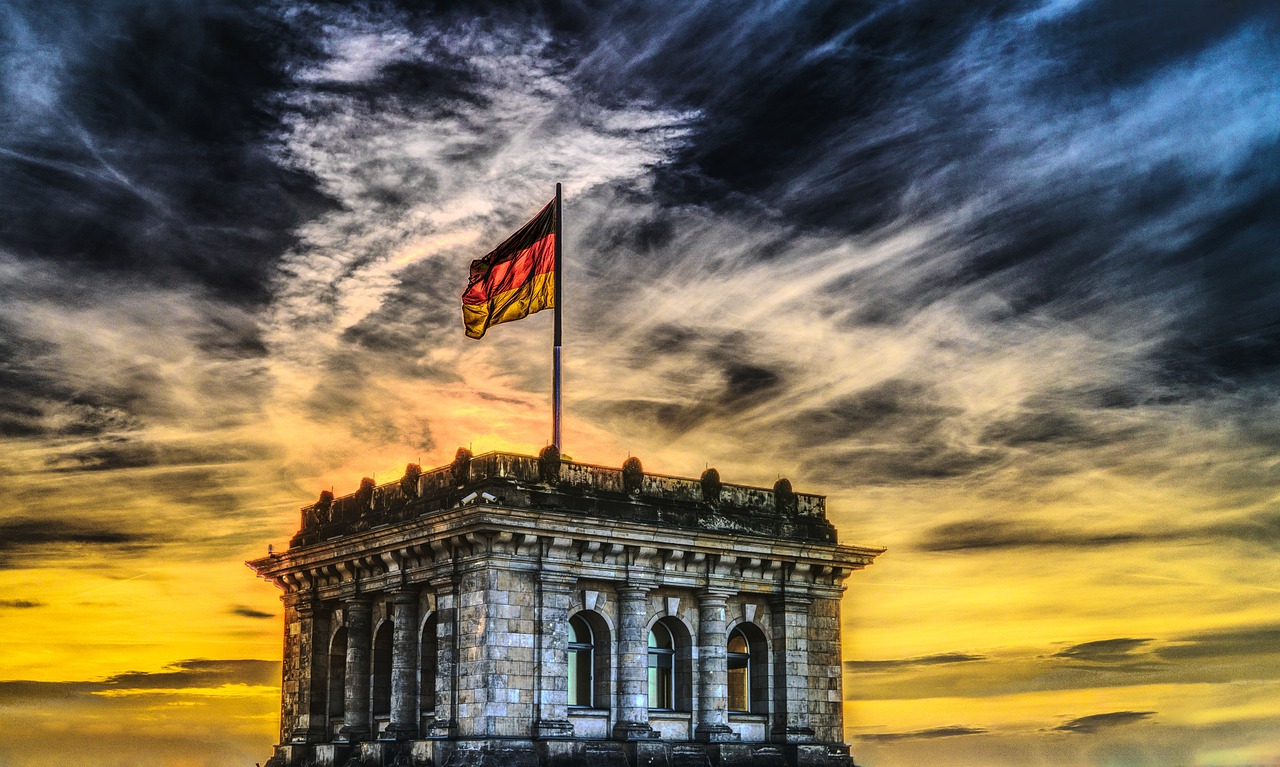
Impact on Contemporary Politics
Carl Schmitt's ideas have had a profound and lasting impact on contemporary politics, resonating through the corridors of power and influencing political theorists, practitioners, and scholars alike. His concepts of sovereignty and decisionism are not merely relics of early 20th-century thought; they are actively shaping modern political discourse. In an era marked by global crises—be it pandemics, climate change, or geopolitical tensions—Schmitt's assertion that the sovereign is the one who decides on the exception rings truer than ever. This idea challenges the traditional norms of governance, suggesting that in times of crisis, leaders may be compelled to act outside the bounds of established law to protect the state and its citizens.
Moreover, Schmitt's critique of liberalism provides a lens through which we can evaluate the effectiveness of democratic institutions today. As many countries grapple with the limits of liberal democracy, Schmitt's arguments about the fragility of these systems in the face of existential threats resonate strongly. His perspective invites us to consider whether the principles of liberalism can withstand the pressures of real-world political conflicts, or if they are too idealistic to function in a world where the friend-enemy distinction becomes increasingly relevant.
In contemporary political movements, we can observe a resurgence of Schmittian thought, especially among populist leaders who often leverage the narrative of crisis to consolidate power. The use of emergency powers, a concept central to Schmitt's decisionism, has become commonplace in various governments around the globe. Leaders invoke crises—whether real or perceived—to justify actions that may infringe upon civil liberties, raising important ethical questions about the balance between security and freedom.
To better understand the implications of Schmitt's philosophy on today's political landscape, consider the following table that outlines key concepts and their contemporary relevance:
| Schmitt's Concept | Contemporary Relevance |
|---|---|
| Sovereignty | The authority of the state to act decisively in crises, often seen in emergency declarations. |
| Decisionism | The necessity for leaders to make quick, decisive choices, especially in times of uncertainty. |
| Friend-Enemy Distinction | Framing political discourse around conflict, often used in populist rhetoric to unify supporters against perceived threats. |
| Critique of Liberalism | Highlighting the vulnerabilities of liberal democratic systems in the face of crises, prompting debates on governance. |
As we navigate the complexities of modern governance, Schmitt's insights compel us to critically assess the nature of political authority and the ethical dimensions of leadership. Are we witnessing a shift towards a more authoritarian style of governance under the guise of crisis management? Or can democratic principles adapt to meet the challenges posed by contemporary threats? These questions remain at the forefront of political discussions today, underscoring the urgency of revisiting Schmitt's work as we seek to understand our current political climate.
- What is Carl Schmitt known for? Carl Schmitt is known for his contributions to political theory, particularly his concepts of sovereignty, decisionism, and political theology.
- How does Schmitt's philosophy apply to modern politics? His ideas about sovereignty and decision-making are increasingly relevant in today's political climate, especially during crises.
- What is the friend-enemy distinction? This concept emphasizes the importance of conflict in politics, suggesting that political identity is often shaped by defining who is an ally and who is an adversary.
- Why is Schmitt's critique of liberalism significant? Schmitt's critique highlights the vulnerabilities of liberal democracy, particularly in times of crisis, prompting discussions on the effectiveness of democratic institutions.
Frequently Asked Questions
- What is Carl Schmitt's concept of sovereignty?
Carl Schmitt's concept of sovereignty revolves around the authority of the state to make crucial decisions, especially during times of crisis. He believed that the sovereign is the one who decides on the state of exception, meaning that in moments of emergency, the normal legal order can be suspended to maintain order and security.
- How does decisionism relate to political theory?
Decisionism, as proposed by Schmitt, emphasizes that effective leadership hinges on the ability to make decisive choices. This idea posits that in political scenarios, especially under pressure, leaders must act swiftly and with conviction, transcending legal constraints to ensure stability and governance.
- What are emergency powers according to Schmitt?
Emergency powers are special authorities granted to leaders to act decisively during crises. Schmitt justified these powers by arguing that they are essential for preserving the state and protecting civil order, even though they can pose risks to civil liberties and democratic principles.
- What is the difference between legal and political authority?
Schmitt distinguished legal authority, which is bound by laws and regulations, from political authority, which can operate beyond these frameworks. He suggested that true political power often requires the ability to act outside of legal constraints, especially in extraordinary circumstances.
- Can you provide examples of decisionism in history?
Yes! Historical examples of decisionism can be seen in various political regimes, particularly during wartime or national emergencies. For instance, leaders who have enacted sweeping measures during crises, such as wartime governance or natural disasters, illustrate how Schmitt's ideas manifest in real-world politics.
- What does political theology mean in Schmitt's philosophy?
Political theology examines the interplay between political authority and religious concepts. Schmitt argued that theological ideas often underpin political legitimacy, suggesting that the authority of the state can be deeply influenced by religious beliefs and doctrines.
- What is Schmitt's critique of liberalism?
Schmitt's critique of liberalism focuses on its inadequacies in addressing crises. He argued that liberal democratic principles often falter when decisive action is needed, as they prioritize individual rights and legal processes over the necessity of strong leadership and unity in times of turmoil.
- What is the friend-enemy distinction?
The friend-enemy distinction is a key element in Schmitt's political thought, emphasizing that politics is fundamentally about conflict and identity. He believed that the ability to differentiate between allies and adversaries is crucial for the formation of political communities and the maintenance of order.
- How does Schmitt's philosophy impact contemporary politics?
Schmitt's ideas resonate in modern political discourse, especially regarding debates on sovereignty, governance, and the role of the state. His critiques of liberalism and insights into political authority continue to influence discussions about how governments respond to crises and the balance between liberty and security.



